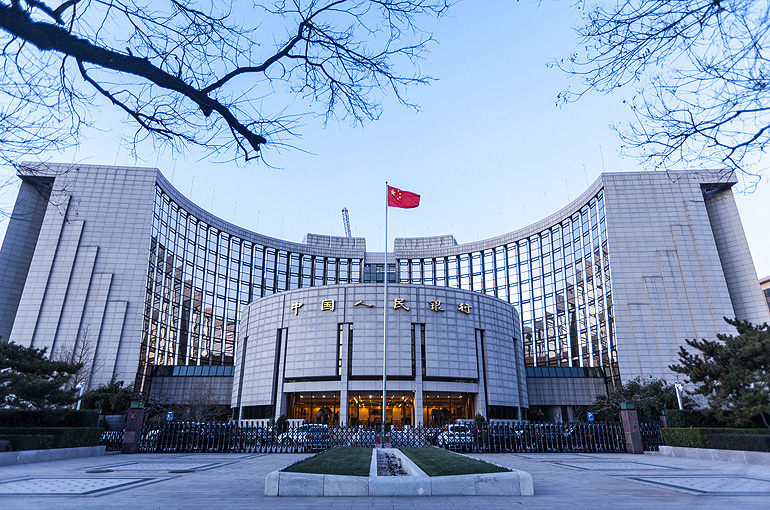 Central Bank Official Hails China’s New Transborder Financial Services Policy as a Landmark
Central Bank Official Hails China’s New Transborder Financial Services Policy as a Landmark(Yicai) April 24 -- The policy document released earlier this week by China’s central bank to enhance cross-border financial services represents a major milestone in supporting Chinese firms as they develop their transborder business, according to Deputy Governor Lu Lei.
The policy is also a landmark both for the opening-up of China's financial sector and bolstering Shanghai's status as a global financial hub, Lu also said at a policy briefing given by officials from the People’s Bank of China yesterday.
The document was jointly released on April 21 by the PBOC, the Shanghai city government, and two other national financial regulators. It calls on financial institutions in Shanghai to further facilitate cross-border financial services and bolster support for local firms going global.
It includes 18 key measures aimed at improving cross-border settlement efficiency, optimizing foreign exchange hedging services, strengthening financing support, enhancing insurance coverage, and refining comprehensive financial services.
With the growing urgency for Chinese enterprises to "go global," their financial service needs have evolved beyond simple financing, Lu said. Financial institutions now need to provide tailored, integrated financial solutions that encompass investment and financing, risk management, and consulting services, he said.
With successful implementation, the new policy should contribute to the development of Shanghai as an international financial center, Lu noted.
Under the premise of legal compliance and controllable risks, the new policy will guide Shanghai to explore and implement cross-border financial services and accumulate valuable experience and know-how for the rest of the country to follow later on, said Wang Xin, director of the PBOC’s research bureau.
For instance, since the end of last year, Shanghai has been piloting the use of the rediscount window to support Chinese yuan cross-border trade refinancing. This initiative can help ease the financing difficulties faced by exporters, revitalize their domestic and international trade assets, and encourage banks to step up their support for exporters, Wang noted.
To help Chinese firms explore the international market, the policy suggests strengthening financing services and foreign exchange risk management, said Chen Zhiwei, director of the Foreign Exchange Research Center of the State Administration of Foreign Exchange. These measures aim to meet the funding needs of businesses, while providing safeguards against foreign exchange risks encountered in overseas markets, he noted.
The PBOC’s local branch will continue to promote the in-depth reform and high-level opening-up of transborder finance, said Su Yun, deputy director of the PBOC’s Shanghai branch. It will also encourage and support pioneering and integrated policy explorations to be first implemented in Shanghai, thereby aiding the city's development into a higher-level international financial center, he said.
Editors: Tang Shihua, Futura Costaglione